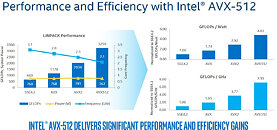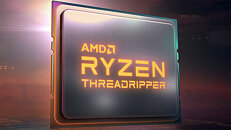
Linus Torvalds Wins Intel InnovatiON Lifetime Achievement Award
Intel commemorated Linux creator Linus Torvalds with the first Intel InnovatiON Lifetime Achievement Award. Torvalds needs little introduction, as he created the first successful Unix-like operating system that sparked off a community-led development effort toward the Linux of today, an OS that runs everything from servers and supercomputers, down to smartwatches. With Torvalds on stage, Intel CEO Pat Gelsinger presented him with a signed copy of an Intel 80386 manual he authored—a book that played a role in Torvalds's understanding of the machine architecture and the development of code that would go on to become the Linux kernel. When asked by Gelsinger on how he envisions the next 20 years, Torvalds replied that he doesn't consider himself a visionary, and can't see past the next six months. He affirmed that the secret to the success of the Linux Kernel project is the shared responsibility of the community toward its development and maintenance.







